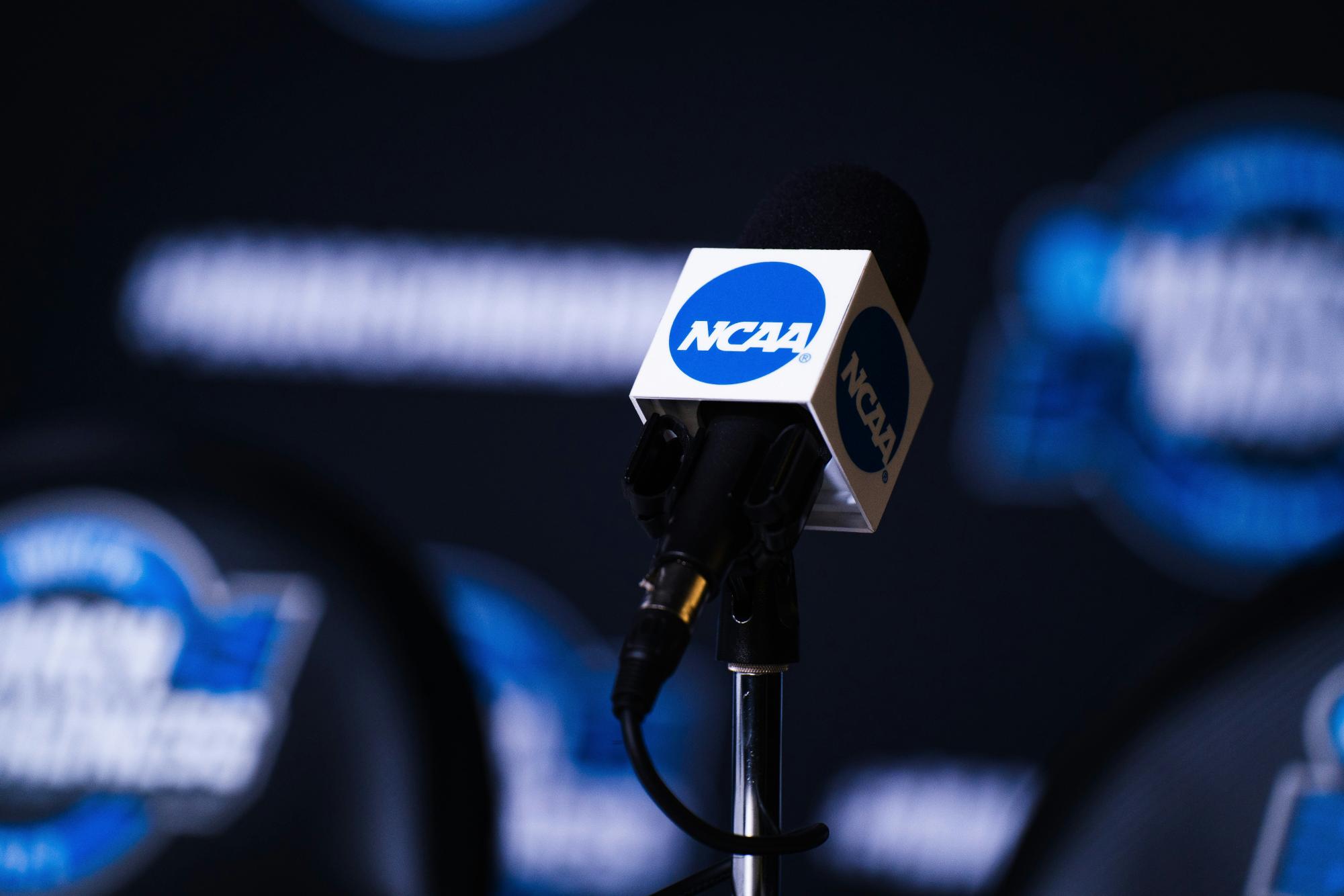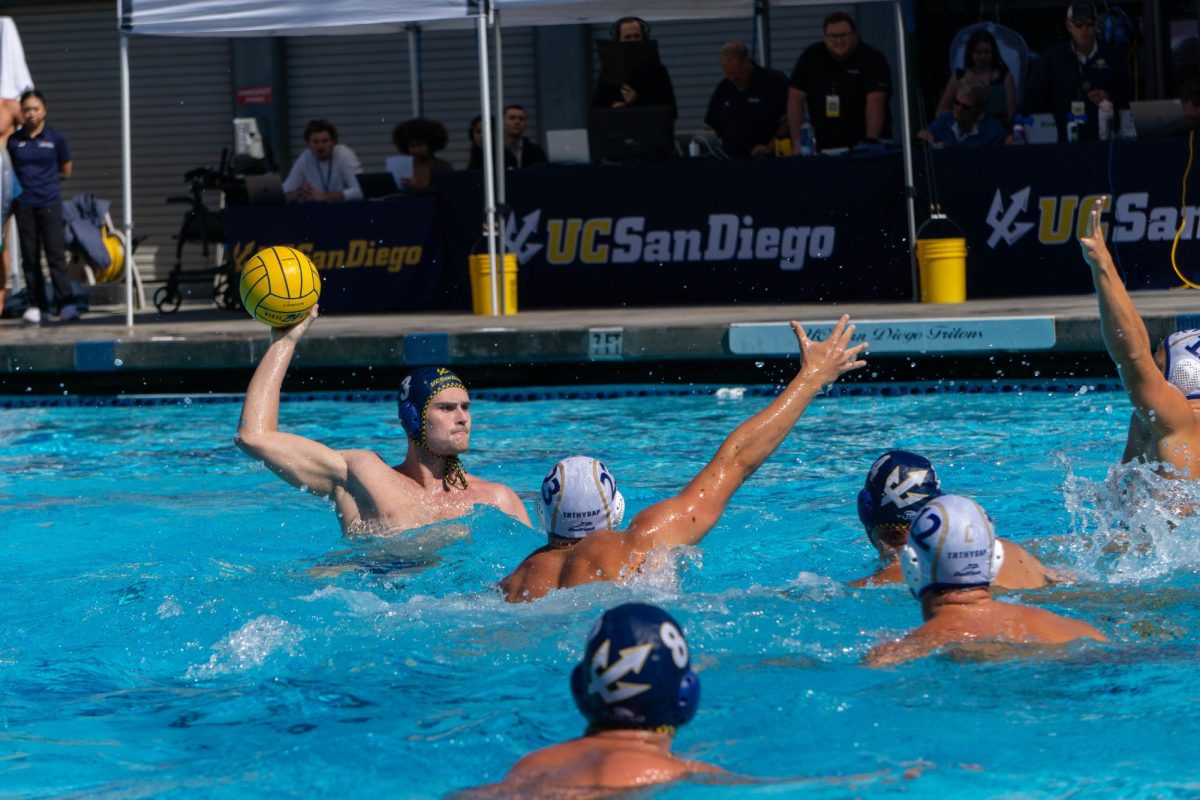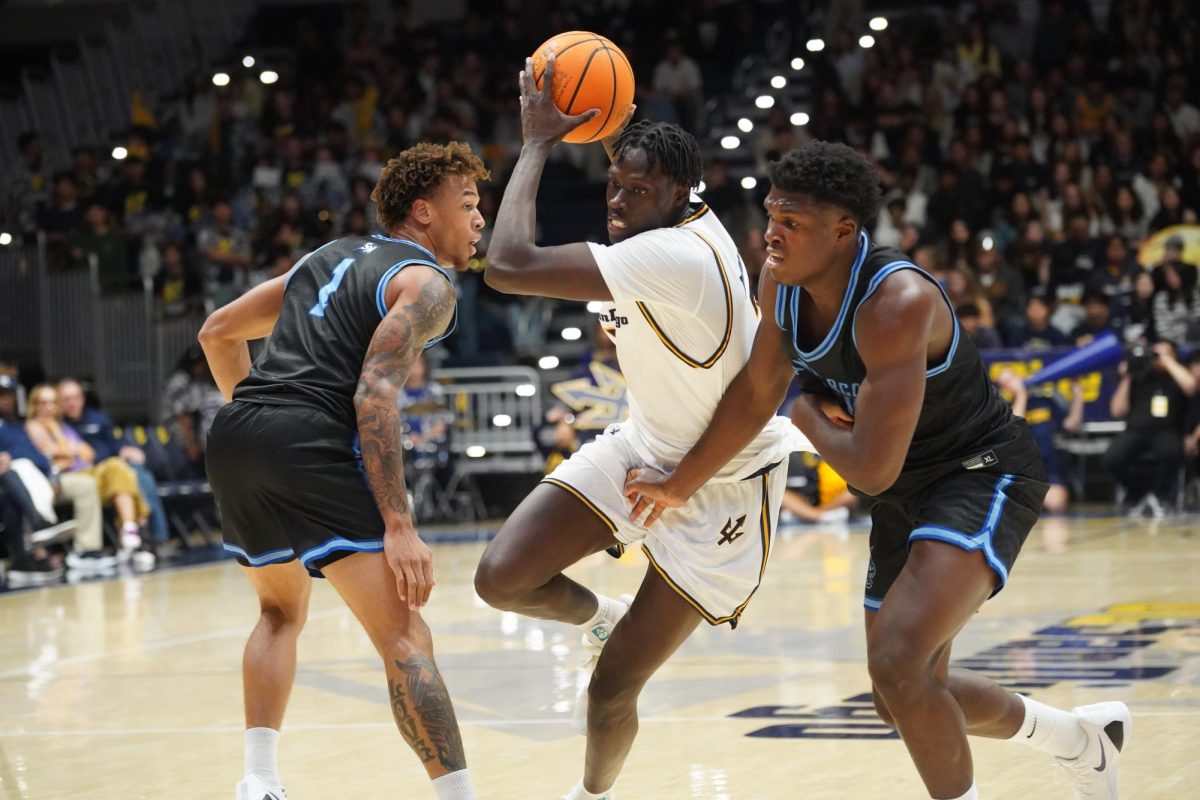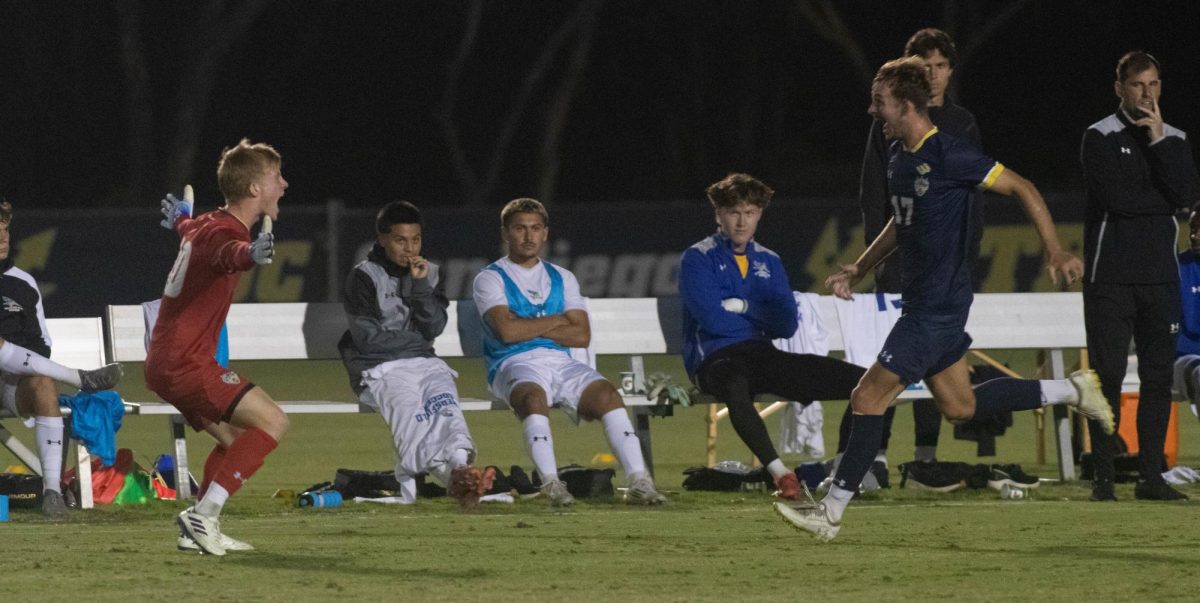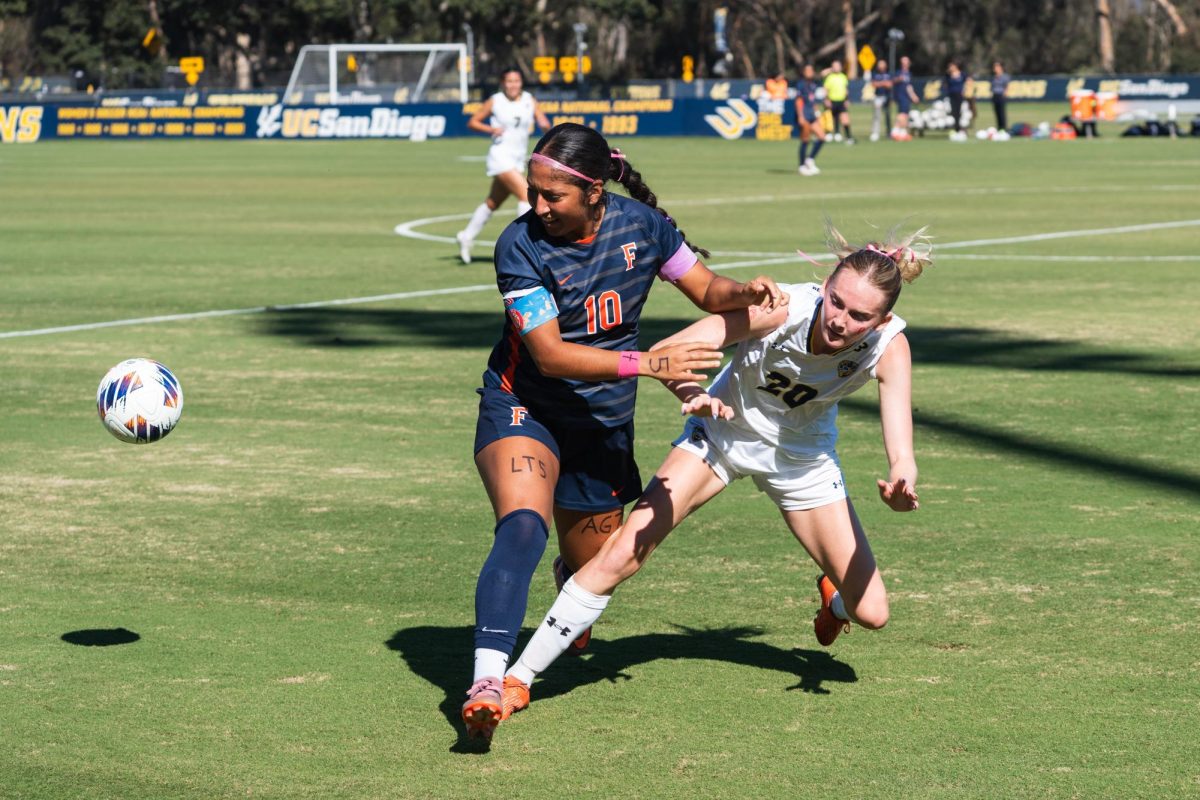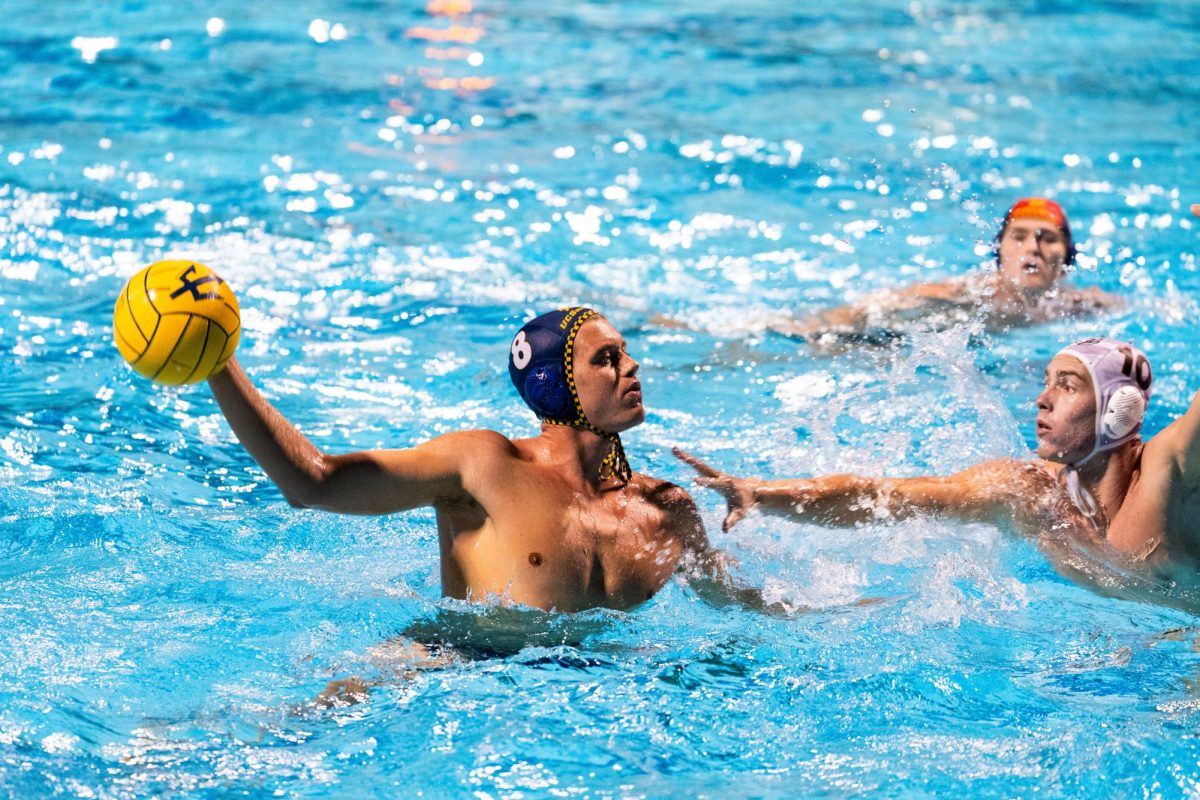Most of the NBA’s All-Star weekend needs drastic reform. The game itself was dreadful, as it has been for about a decade. The dunk contest was a tacky gimmick, epitomized by Jaylen Brown earning a 47.6 score after dunking over a seated Kai Cenat — on his second attempt. Even the skills challenge felt forced, with several players failing to give a pretense of effort.
Yet, at least for a brief moment, the All-Star festivities felt like they had returned to past glory. Unlike the other events of the weekend, the inaugural NBA vs.WNBA three-point contest was a rousing success. The New York Liberty’s Sabrina Ionescu, who holds the all-time record score in a three-point contest, recorded a 26 — a total that would have tied her for first place in the NBA contest. Her score was bested only by an incredible 29-point effort by the greatest shooter of all time. Despite officially losing, Ionescu’s performance felt like a watershed moment — unmistakable excellence to silence the critics who said she didn’t belong.
Ionescu’s performance raises another, broader point: women’s college basketball is creating genuine stars, a trend that has long been forgotten in the men’s game. Ionescu is far from the first great women’s college basketball player. In the decade before her reign at the University of Oregon, the world witnessed, among others, Brittney Griner at Baylor, Breanna Stweart at the University of Connecticut, the Ogwumike sisters at Stanford, Kelsey Plum at the University of Washington, and A’ja Wilson at the University of South Carolina. While these players shared greatness, they did not reach equal levels of prominence; Ionescu’s prolific scoring, aided by brand deals with Nike and State Farm, propelled her to an unprecedented level of fame going into the WNBA draft.
Ionescu’s mantle has been taken up by a new generation of college basketball stars. The headliner is Caitlin Clark, whose three-point range at Iowa has made her a national phenomenon. Clark’s 32.4 points and 8.5 assists per game not only lead women’s college basketball, but also sell thousand-dollar tickets in arenas across the country. Two weeks ago, Clark broke the women’s NCAA points record with a trademark logo three in a career-high 49-point effort. To break the all-time NCAA record, held by Pete Marovich, Clark’s average can fall to 25.
Clark’s burgeoning rivalry with Louisiana State University’s Angel Reese has drawn comparisons to Larry Bird and Magic Johnson’s NCAA clash in 1979. Reese, who helped lead LSU to last year’s national championship over Clark’s Iowa, posted a record 34 double-doubles in 2023. Cameron Brink is Stanford’s latest heroine, adding 17.8 points and 11.4 rebounds per game to a nation-leading 3.6 blocks per game. Don’t forget about Paige Bueckers, who won four national Player of the Year awards as a UConn freshman in 2021 before tearing her ACL the following season. And here comes USC freshman Juju Watkins, who scored 51 points (51!) in a win over Brink’s Stanford this month.
This level of stardom is reflected in television ratings and ticket sales. Last year’s women’s March Madness championship pitted Clark’s Iowa against Reese’s LSU, with the Tigers ultimately besting the Hawkeyes in a thrilling 102–85 game. ESPN and ABC’s broadcasts reportedly peaked at 12.6 million viewers, shattering the women’s college basketball record. In contrast, the men’s final — which featured UConn and San Diego State — hit a record low of 14.7 million viewers. It is not hard to envision a very near future where women’s March Madness viewership overtakes the men’s; its storylines are more compelling, its players are more captivating, and its basketball is a better product.
NIL has also allowed these athletes to cash in on their talents. Bueckers, a projected top-five pick this year, has instead opted to return to UConn in 2025. Clark, Reese, and Brink face the same decision this offseason; their multi-year tenures, like Ionescu and players before her, have built connections between athlete and school. These relationships generate familiarity for casual fans, storylines for journalists, and lasting memories for university communities — all contributing to increased interest in the sport. With all due respect to Zach Edey and Drew Timme, a long tenure in men’s college basketball is usually due to a lack of NBA talent, not a desire to go to class.
Yet stars in women’s college basketball ultimately leave for the WNBA. With the Class of 2024 on its way, the WNBA looks set for a stratospheric ascent. Expect Caitlin Clark to take on the NBA vs. WNBA challenge very soon. And expect her to win.



